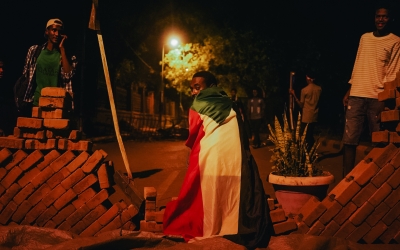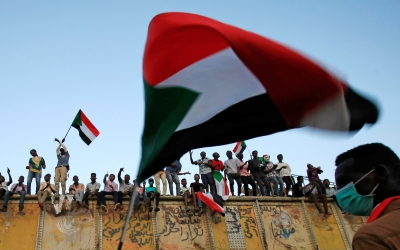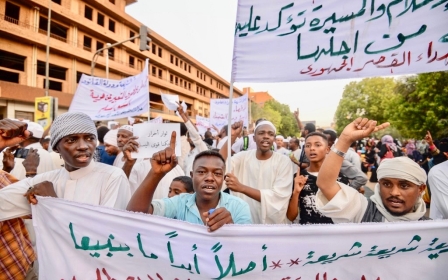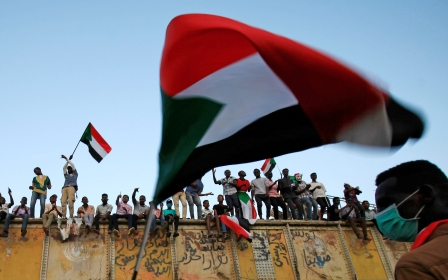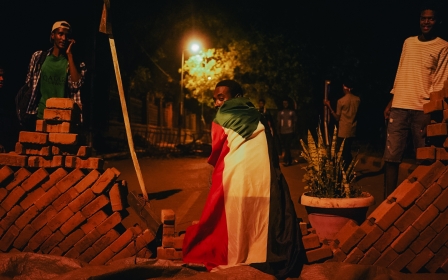Sudan protesters plan general strike as talks falter
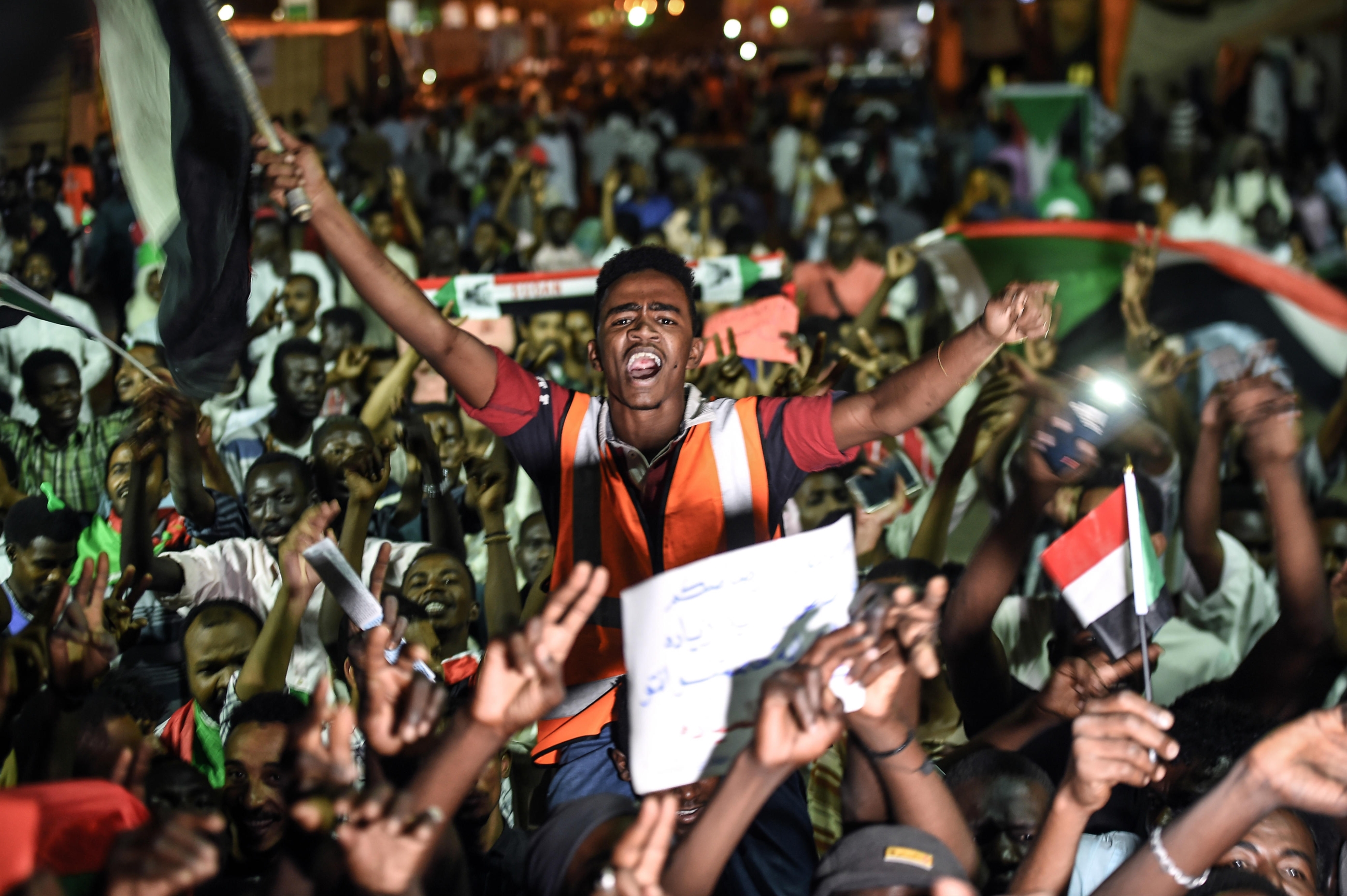
Sudanese protest leaders called on their supporters on Tuesday to prepare for a general strike, after talks with the country's military rulers stalled on who will lead an agreed three-year transition.
Protest leaders had reached agreement with the ruling Transitional Military Council (TMC) on the other main aspects of the transition after veteran president Omar al-Bashir was deposed last month. But early on Tuesday, the generals baulked at protesters' demands for a civilian head and a civilian majority for a new sovereign council to lead the transition.
New MEE newsletter: Jerusalem Dispatch
Sign up to get the latest insights and analysis on Israel-Palestine, alongside Turkey Unpacked and other MEE newsletters
"The main point of dispute that remains is concerning the share of representatives of the military and the civilians in the council and who will be the head of the new body," the two sides said in a joint statement.
The Sudanese Professionals Association, which took the lead in organising the four months of nationwide protests that led to Bashir's ousting, said: "In order to achieve a full victory, we are calling for a huge participation in a general political strike.
"The strike is our revolutionary duty and the participation in the sit-in... is a crucial guarantee to achieve the goals of the revolution."
'We will make an announcement'
Madani Abbas Madani, a spokesman for the Declaration of Freedom and Change Forces (DFCF) opposition alliance, told AFP news agency that the preparations for a "general political strike and civil disobedience" were already under way.
"Whenever we will decide on applying these plans, we will make an announcement," said Madani.
The army acknowledged early on Tuesday that the makeup of the sovereign council remained the main point of contention, but did not go into details on its position, Reuters news agency reported.
"Aware of our historical responsibility, we will work toward reaching an urgent agreement ... that meets the aspirations of the Sudanese people and the goals of the glorious December revolution," said a statement signed by the TMC.
Gulf Arab influence
After Bashir was ousted on 11 April following months of civilian protests against his 30-year rule, the Sudanese army set up the TMC to rule the country and promised to hand control over after elections.
But, wary of the example of neighbouring Egypt where the head of the army Abdel Fattah el-Sisi eventually became president after the overthrow of Hosni Mubarak, Sudanese protesters have sought guarantees of civilian control.
The two sides launched what had been billed as a final round of talks on the transition late on Sunday.
The TMC has faced pressure from Western government and the African Union to agree to a civilian-led transition - the central demand of the thousands of demonstrators who have spent weeks camped outside army headquarters in Khartoum.
The TMC has been pushing for its chairman, General Abdel Fattah al-Burhan, to head the new sovereign council but protest leaders have called for a civilian leader.
Burhan, like Bashir, stands accused of involvement in war crimes in Darfur. The general also oversaw the controversial deployment of Sudanese troops in Yemen and had previously served as the commander of the army's ground forces under Bashir.
When talks broke up early on Tuesday, neither side said when they would resume.
Protest leader Siddiq Yousef told reporters they had been suspended.
Various powers, including wealthy Gulf Arab states, are trying to influence the path of a country of 40 million strategically located between the Middle East and sub-Saharan Africa.
Middle East Eye delivers independent and unrivalled coverage and analysis of the Middle East, North Africa and beyond. To learn more about republishing this content and the associated fees, please fill out this form. More about MEE can be found here.


